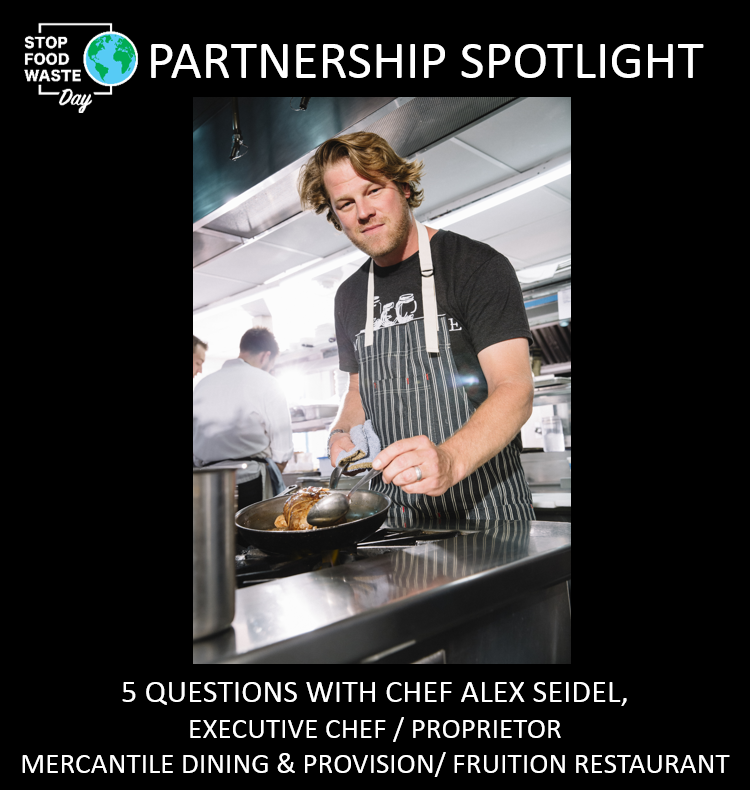5 Questions with Chef Alex Seidel, Executive Chef & Proprietor
1. What’s your take on all the attention food waste is getting lately?
It is a great topic and something that I talk to my family about often. Ever since I was a young chef, controlling waste through organization and complete utilization is how one respects food. This proactive approach to running a lean kitchen isn’t only essential for running a sound business but it is a skill that people should take home with them as well.
2. What are your best tips to reduce food waste in the professional kitchen?
It starts with understanding what goes into the kitchen trash. It is not just the preparation of food, it starts with ordering and the chain is linked until the guest has finished their meal and the plate comes back to the kitchen. Once you are aware of the waste that is created, it takes constant communication and training with your team about the importance of product utilization, portion size and organization.

Nose-to-tail has certainly become trendy as of late but chefs have thought about food waste for a long time because food cost has always been part of the kitchen culture. I really appreciate the increased awareness. It has created a conversation and a new way of thinking about food waste. Getting people to think about the critical state our food systems are in, is really important.
3. How about in the home kitchen?
Controlling waste at home is especially difficult for a busy family. You have to plan, to think about your meals ahead of time, think about when you have time to eat and be cognizant of your schedule. Being a busy chef, my wife takes care of all of the little things but she can come home with a salmon fillet and some crab cakes without considering the fact that we have kid’s gymnastics and football practice the next couple nights. Getting home at 9pm is not a good time to start cooking salmon and days later the quality is no good and the salmon is forced to be thrown away. Often the lack of awareness on the time you actually have to cook for the family creates waste but proper planning can make a tremendous impact.
4. What is one small change every person can make in their daily lives to make a big difference?
I have noticed as I have gotten older and paying more attention to my health, that portion control is very key. If we could just reduce the sheer amount of food that we consume in every meal, our food system would not be under tremendous weight to over produce food, grow it such a rapid rate, or genetically modify foods. I used to cook a ribeye for each person at the table and we would do our best to finish all of the meat, but now the four of us share a ribeye. Changing eating habits will put less pressure on our food system and create a healthier society.
5. What is your favorite way to repurpose leftovers?
Honestly, I hate leftovers so it is all about getting better at cooking for one or two or four or whatever size your group is. Having said that there are certain leftovers that I really love, obviously Thanksgiving, you can create a lot of different things with turkey. But I don’t like to eat the same meal twice so it is about repurposing and turning a protein into something different.





